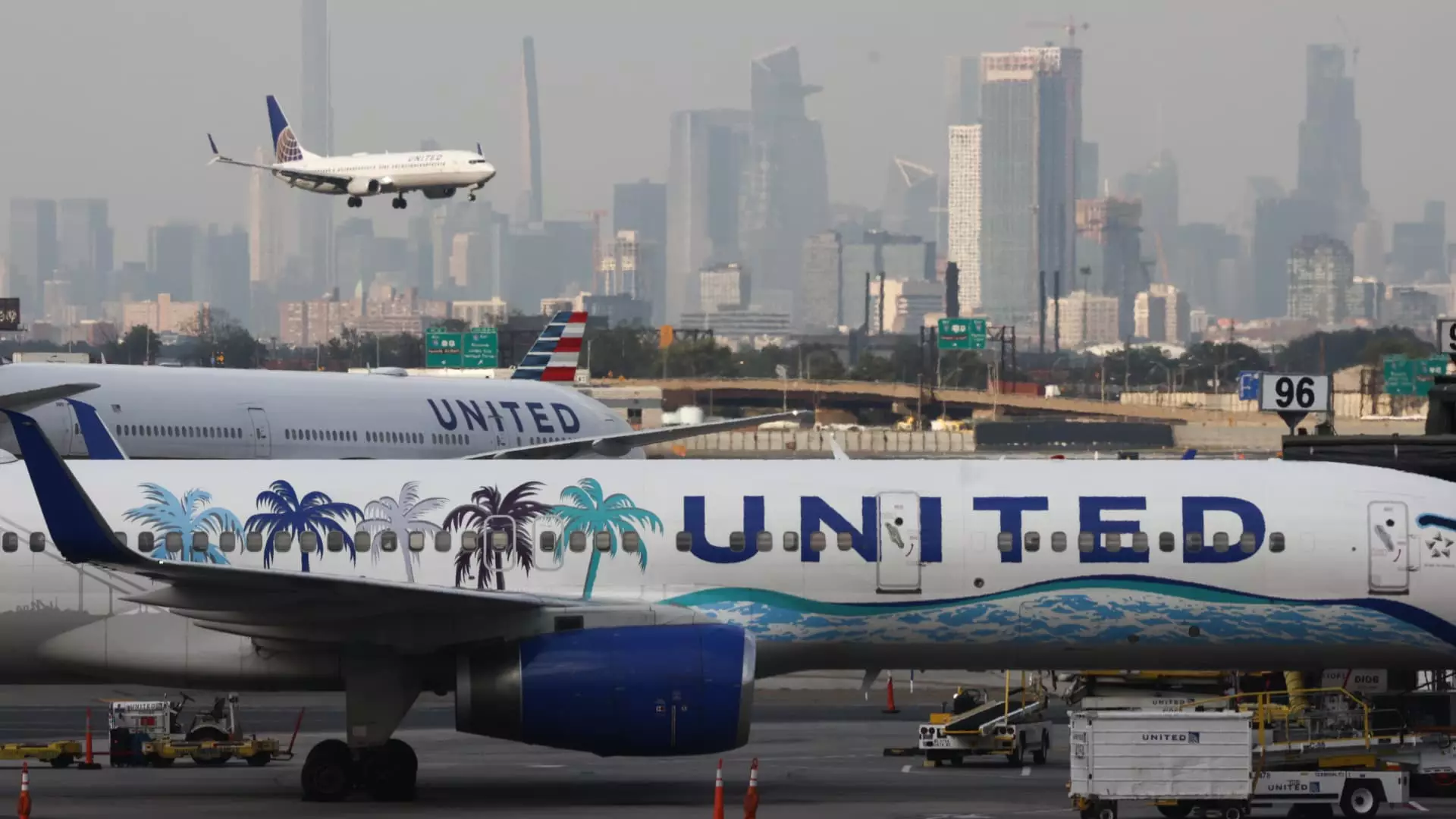On a tumultuous Tuesday, U.S. airline stocks plummeted, mirroring the growing unease in broader economic conditions. Having previously served as a beacon of stability in the volatile landscape of consumer spending, these stocks now sit at their lowest values since the previous year. The catalyst for this downturn? A freshly minted series of tariffs imposed by the Trump administration on both Mexico and Canada, coupled with escalated duties on Chinese imports. Such aggressive trade policies inevitably lead to concerns over retaliatory measures that could worsen economic prospects.
Leaders in retail, such as executives at Best Buy and Target, have issued stark warnings that these tariffs could translate into price hikes for consumers—a development likely to dampen disposable income and consumer confidence. These insights frame a broader narrative in which economic uncertainties jeopardize seamlessly progressing industries, with airlines now feeling the heat.
Flight Paths Altered: The Impact on Specific Airlines
United Airlines, with pronounced exposure to the Chinese market, felt the brunt of these developments, experiencing a nearly 6% decline in stock value. Delta Air Lines followed suit, with a downturn of roughly the same percentage, while American Airlines faced a loss of close to 4%. Other domestic carriers did not escape unscathed either; JetBlue Airways recorded almost a 6% plunge, Allegiant Air grieved over a more than 9% drop, and Frontier Airlines saw a weakening of over 4%. It is a vivid illustration of how transient good fortune can be, especially in an industry so sensitive to economic fluctuations.
Once hailed for robust performance buoyed by strong consumer demand and stable domestic flight growth, airlines are shifting focus to a more somber outlook. Analysts now express concern about potential changes in travel demand, particularly among price-sensitive customers eager for spring travel. The U.S. Commerce Department’s recent disclosure of a dip in consumer spending—the first incidence in nearly two years—only exacerbates these worries. This alarming trend serves as a crucial reminder of the unpredictable nature of consumer behavior.
Analyzing Economic Indicators: Signs of Weakness
Deutsche Bank’s latest communications encapsulate the prevailing sentiment in the market, highlighting what they term an “economic soft patch.” While some aspects of the supply landscape remain favorable, there is a growing belief that these conditions, paired with emerging economic indicators, will influence air travel demand moving forward. The full magnitude and duration of this soft patch remain uncertain, yet analysts suggest it will weigh on domestic discretionary segments.
Nonetheless, it’s essential to dissect the current conditions more granularly. Corporate and long-haul international travel, for example, continue to withstand these tides. United Airlines’ CFO Mike Leskinen recently expressed optimism regarding international leisure travel, slightly dampened domestic areas, and a notable decline in government travel—a sector contributing to around 2% of their revenue. The current administration’s cost-reduction strategies, a consequence of widespread layoffs, have hit government travel particularly hard.
Navigating Stormy Weather: The Airline Industry’s Resilience
Despite the gloomy predictions, there are pockets of optimism for the airline sector. Delta Airlines has reported robust performances within specific segments, particularly regarding spring break bookings and U.S.-Europe international travel demand, which remain strong even amid the turbulence. According to a note from Raymond James, these insights emerged following discussions with Delta’s executives, revealing that even amid problematic conditions, there are resilient sectors within the travel industry.
Indeed, the crux of the matter lies in understanding that while the future may be uncertain for some segments of air travel, the potential for positive demand in other areas continues to evolve. The landscape may be shifting, but successful airlines will adapt and innovate to navigate these stormy skies.


Leave a Reply